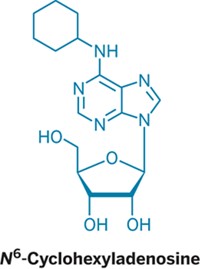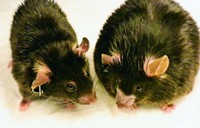Advertisement
Grab your lab coat. Let's get started
Welcome!
Welcome!
Create an account below to get 6 C&EN articles per month, receive newsletters and more - all free.
It seems this is your first time logging in online. Please enter the following information to continue.
As an ACS member you automatically get access to this site. All we need is few more details to create your reading experience.
Not you? Sign in with a different account.
Not you? Sign in with a different account.
ERROR 1
ERROR 1
ERROR 2
ERROR 2
ERROR 2
ERROR 2
ERROR 2
Password and Confirm password must match.
If you have an ACS member number, please enter it here so we can link this account to your membership. (optional)
ERROR 2
ACS values your privacy. By submitting your information, you are gaining access to C&EN and subscribing to our weekly newsletter. We use the information you provide to make your reading experience better, and we will never sell your data to third party members.
Biological Chemistry
Fatty Food Reactions Suppress Appetite
Lipids and a protein secreted after a high-fat meal curb appetite—at least in rodents
by Sophie L. Rovner
December 8, 2008
| A version of this story appeared in
Volume 86, Issue 49
Appetite-suppressing compounds produced by rodents after eating a high-fat meal could lead to methods to prevent or treat obesity if they function in a similar fashion in humans. Yale University's Gerald I. Shulman, Matthew P. Gillum, and colleagues determined that after eating a greasy meal, mice and rats produce N-acylphosphatidylethanolamines (NAPEs) in the small intestine. These lipids then travel in the blood to the brain, where they suppress appetite. The researchers showed that mice and rats injected with a NAPE compound (shown) eat less than normal and lose weight (Cell 2008, 135, 813). Meanwhile, Andrew A. Butler of the Pennington Biomedical Research Center, in Baton Rouge, La., and coworkers found that a high-fat meal causes mice to produce the protein adropin in the liver and brain. The researchers discovered that animals that become obese after eating a high-fat diet for three months don't produce adropin normally. However, injecting these obese mice with synthetic adropin causes them to consume less food and lose weight (Cell Metab. 2008, 8, 468).





Join the conversation
Contact the reporter
Submit a Letter to the Editor for publication
Engage with us on Twitter